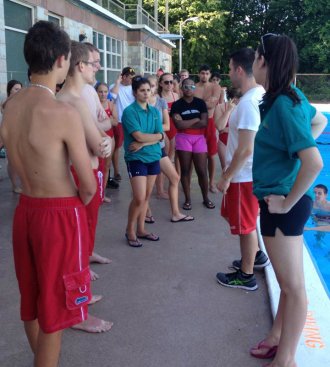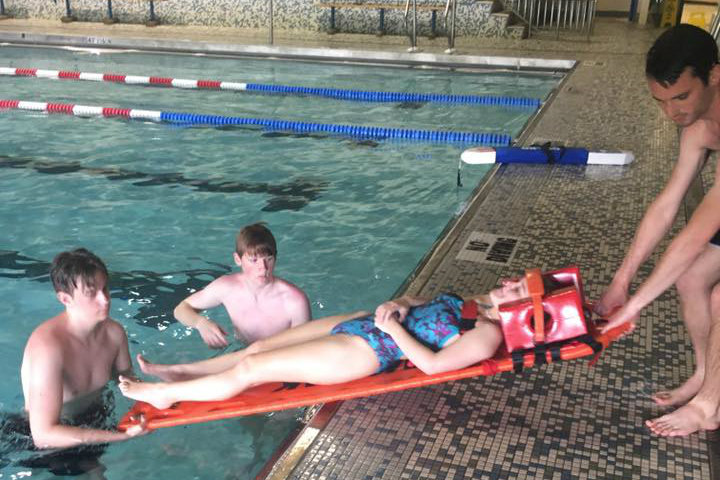The staff at Dennis Malone Aquatics Center has developed a multifaceted lifeguard training program that emphasizes time flexibility, respect and compassion, as well as appealing to the younger learners and their attention span.
A first resonder by training, Aquatics Supervisor Jaimie Clout wanted to develop a training program that integrates continuing education similar to what she had experienced. This would take lifeguards above and beyond the minimal certification and in-service requirements.
The year-round facility breaks the year up into four seasons that correspond with sports, to make things easier for athletes who participate in team sports. To outline this continuing education, Clout and her team provide each guard with a training checklist each season. Printed on 8½-by-11-inch card stock, the list contains eight training sessions, which guards can attend at their convenience. This system not only better prepares them for their jobs, but also gives the ambitious crowd something to aspire to, and allows scheduling flexibility.
“It’s something different, it gives them something to be held accountable for and helps them see where they are,” Clout says.

As a delivery system, Clout created a virtual classroom, called The Learning Lifeguard, which contains hundreds of training opportunities, as well as materials such as handouts, PDFs, information on topics such as blood-borne pathogens, department policies, sexual-harassment training, CDC guidelines and anything COVID-related.
It’s great for newly hired lifeguards, who will receive assignments to complete when their schedule allows.
Aside from virtual instruction, managers and instructors employ “lean learning,” with training provided in frequent, bite-sized modules to suit shorter attention spans. They might learn in a three-to-five-minute safety talk, a two-to-three-sentence email addressing a safety topic, or even a text message with a brief reminder. “They’re just small, tangible points that are concise and allow for the lifeguards to really take it in but not have to overthink,” Clout says.
Overarching philosophy
The team also provides a more emotionally safe environment when it comes to providing feedback, correction or discipline.
They do this by providing immediate feedback, rather than having them go through an entire scenario before presenting a laundry list of mistakes. Handling one thing at a time helps them focus. But there’s also an emotional component. “It’s an opportunity for somebody to feel less frustrated, because they’re feeling more coached versus disciplined,” Clout says.
This marks a cultural change that’s taken place. When Clout first trained, it was presented in a military fashion, where mistakes brought near-humiliation. That only makes guards timid and afraid of making a mistake. “You can’t have lifeguards who are afraid to act,” she says. “The answer is empowering them, [and] standing right next to them so they know that you’re truly there for them.”
